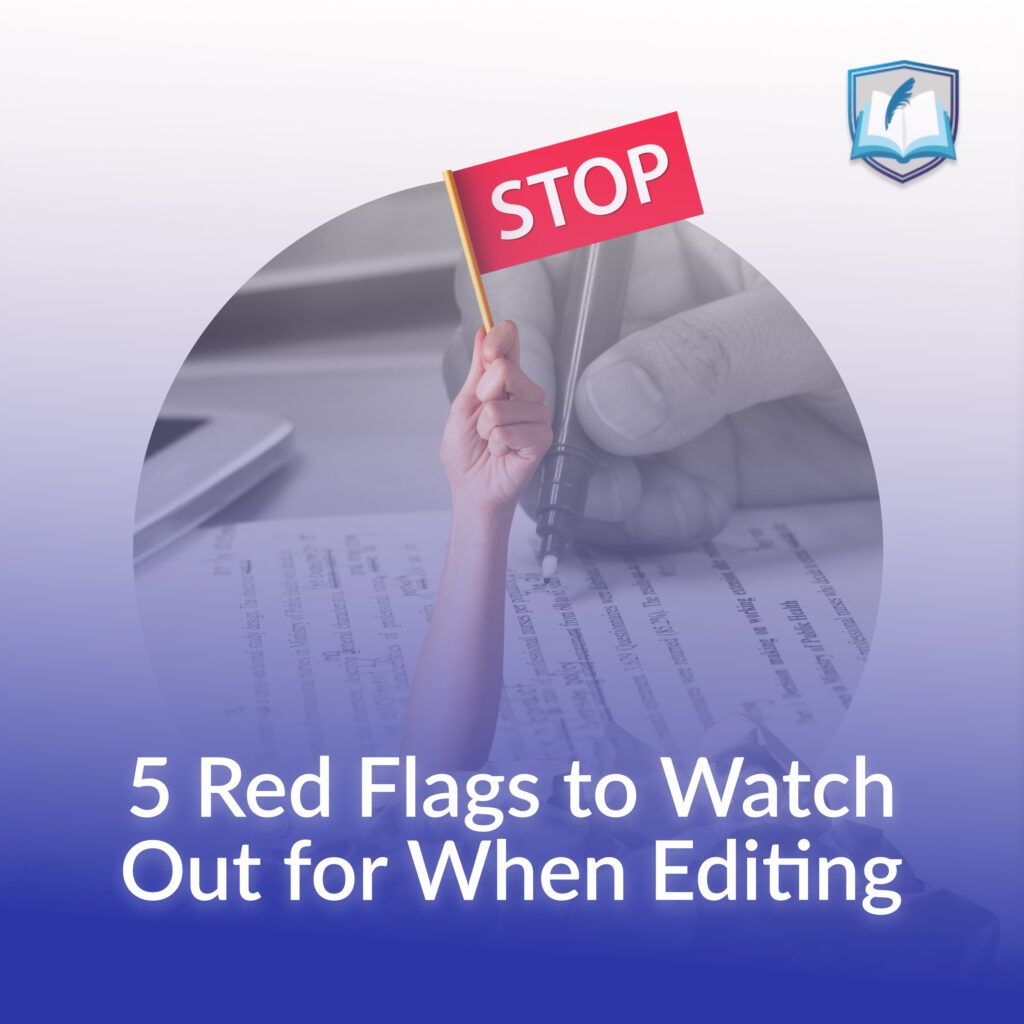Editing can be a tricky process, but being aware of these five red flags can help you catch potential issues before they become bigger problems.
As an editor, it’s important to be vigilant and catch any potential issues before they make it to publication. Here are five red flags to watch out for during the editing process that could indicate bigger problems down the line.
Inconsistencies in tone or style.
One red flag to watch out for when editing is inconsistencies in tone or style. If the writing shifts suddenly from a formal tone to an informal one, or if the style changes from descriptive to narrative, it can be jarring for the reader and detract from the overall quality of the piece. Make sure to keep an eye out for these inconsistencies and work with the writer to ensure a consistent tone and style throughout the piece.
Repetitive or redundant language.
Another red flag to watch out for when editing is repetitive or redundant language. This can include using the same word multiple times in a sentence or paragraph, or using phrases that say the same thing in different ways. Not only can this be boring for the reader, but it can also make the writing feel unpolished and unprofessional. Look for opportunities to rephrase or condense sentences to make the writing more concise and engaging.
Grammatical errors or typos.
One of the most obvious red flags to watch out for when editing is grammatical errors or typos. These mistakes can make your writing appear unprofessional and can distract readers from your message. Take the time to carefully proofread your work, or consider using a grammar and spell-check tool to catch any errors you may have missed. Remember, even small mistakes can have a big impact on the overall quality of your writing.
Lack of clarity or confusing phrasing.
Another red flag to watch out for when editing is a lack of clarity or confusing phrasing. If your writing is difficult to understand or your message is unclear, your readers may become frustrated or lose interest. To avoid this, try reading your work out loud or asking someone else to read it and provide feedback. You may also want to consider restructuring your sentences or using simpler language to make your message more accessible.
Inaccurate or unsupported information.
One of the biggest red flags to watch out for when editing is inaccurate or unsupported information. This can include factual errors, outdated information, or claims that are not backed up by evidence. Not only can this damage your credibility as a writer, but it can also mislead your readers and potentially cause harm. To avoid this, always fact-check your work and make sure to cite your sources when making claims or presenting information.




